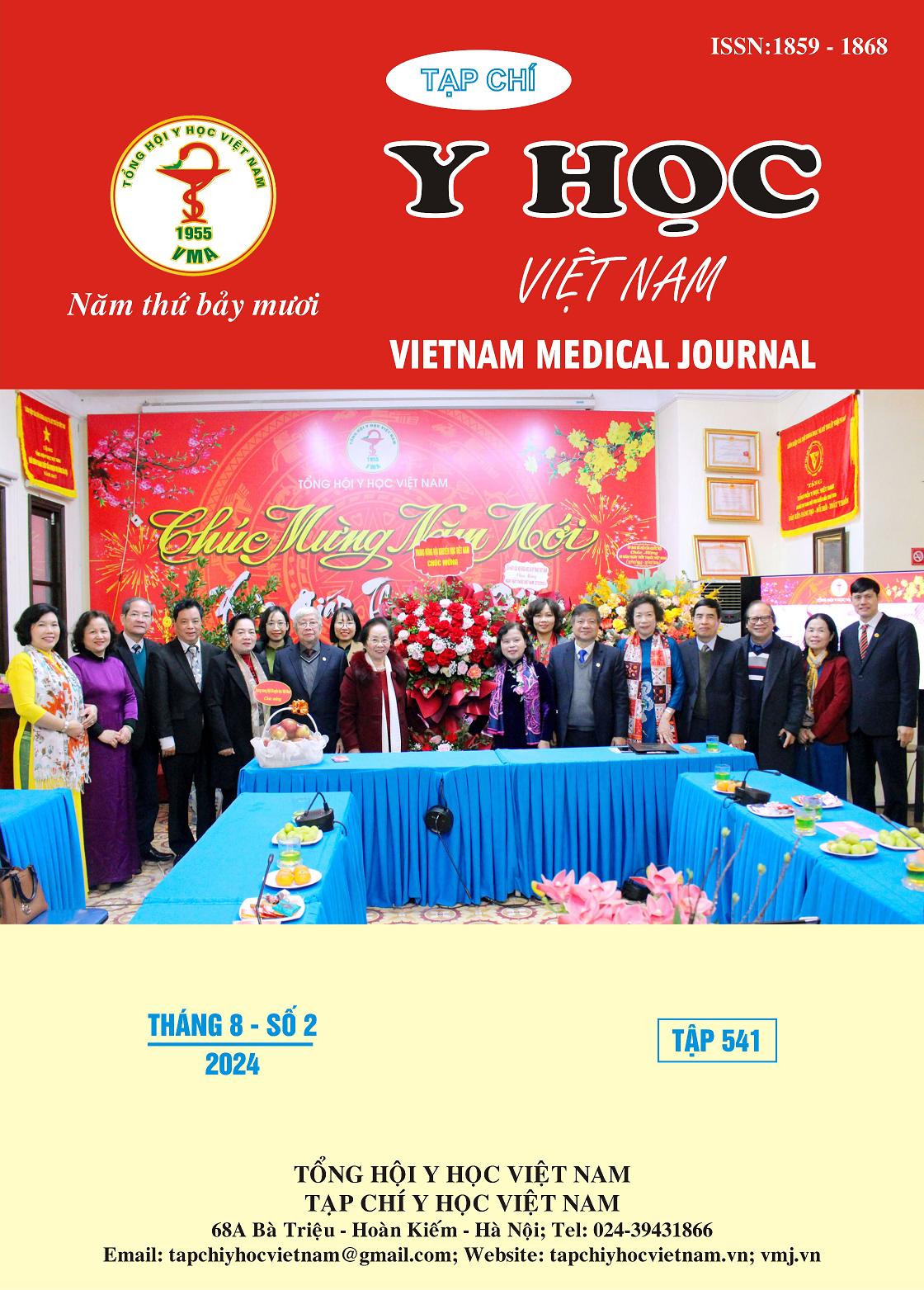TO EVALUATE THE CLINICAL EFFICACY OF GK1 CAPSULES FOR THE TREATMENT OF CHRONIC KIDNEY DISEASE
Main Article Content
Abstract
Objectives: To evaluate the efficacy of GK1 capsules in treating chronic kidney disease without clinical indications for renal replacement therapy. Subjects and methods: 60 patients with stage I, II, and IIIa chronic kidney disease were divided into two groups: the GK1 group (n=30, taking 6 capsules of GK1 per day) and the control group (n=30, taking 10 tablets of Ketosteril per day). The study duration was 30 days. This was a prospective, controlled study, comparing pre- and post-treatment outcomes. Results: After 30 days, the GK1 group exhibited a glomerular filtration rate (44.86 ± 8.96 ml/minute/1.73m2) higher than that before treatment (41.23 ± 7.76 ml/minute/1.73m2), and higher than the control group (36.93 ± 11.16 ml/minute/1.73m2), p < 0.05. General treatment efficacy: The proportion of patients showing effectiveness in the GK1 group (40%) was higher compared to the control group (6.67%), (p < 0.05). Additionally, the GK1 group improving common traditional Chinese medicine symptoms such as back pain, nocturia, leg cramps… especially in CKD patients with phlegm dampness and damp-heat. During the study period, there were no adverse effects observed with GK1 capsules. Conclusions: GK1 capsules are safe and effective in increasing glomerular filtration rate and improving common symptoms in patients with chronic kidney disease without clinical indications for renal replacement therapy, especially in those with phlegm dampness and damp-heat.
Article Details
Keywords
Chronic kidney failure, GK1 capsules, traditional medicine
References
2. Cao Y, Hu J, Sui J, et al. (2018). Quercetin is able to alleviate TGF-β-induced fibrosis in renal tubular epithelial cells by suppressing miR-21. Experimental and therapeutic medicine, 16(3), 2442-8.
3. Các Bộ môn Nội - Trường Đại học Y Hà Nội (2002). Suy thận mạn, Bài giảng bệnh học nội khoa. Tập 1, Nhà xuất bản Y học, 326-37.
4. National Kidney Foundation (2002). KDOQI clinical practice guidelines for chronic kidney disease: evaluation, classification, and stratification. American Journal of Kidney Diseases, 39(2 Suppl 1), S1-266.
5. Trịnh Tiêu Mạc (2002) Nguyên tắc chỉ đạo nghiên cứu lâm sàng tân dược trung dược, Nhà xuất bản Khoa học kĩ thuật y dược trung quốc, 163-168.
6. Yamabe N, Park JY, Lee S, et al. (2015). Protective effects of protocatechuic acid against cisplatin-induced renal damage in rats. Journal of Functional Foods, 19, 20-7.
7. Lian Y, Xie L, Chen M, et al. (2014). Effects of an astragalus polysaccharide and rhein combination on apoptosis in rats with chronic renal failure. Evidence-based complementary and alternative medicine: eCAM, 2014, 271862.


